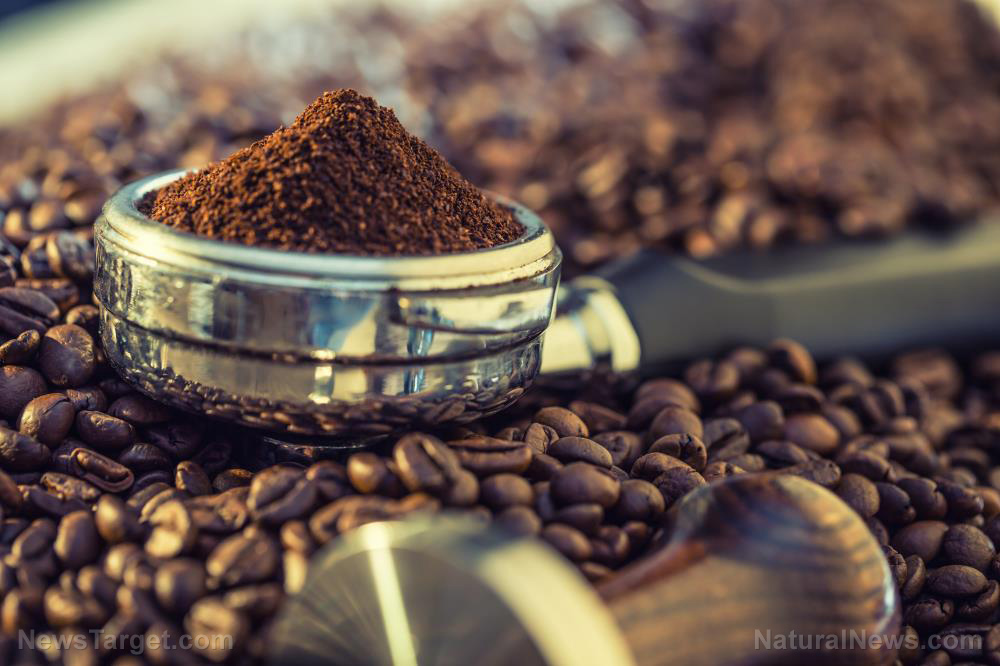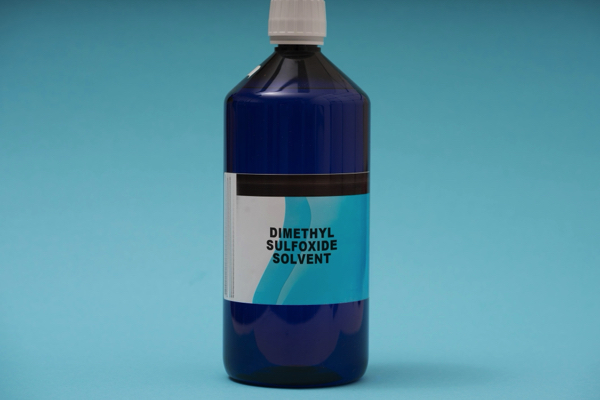Researchers discover coffee compound that can fight muscle aging
06/14/2025 / By Evangelyn Rodriguez

- Trigonelline, a natural compound found in coffee, fenugreek and other plants, has been identified as a potential ally against sarcopenia, or age-related muscle loss that threatens independence in older adults.
- Sarcopenia is linked to declining mitochondrial function, which reduces cellular energy production. Trigonelline can act as a precursor to NAD+, revitalizing mitochondria and improving muscle strength and endurance.
- Research shows that higher trigonelline levels correlated with better grip strength, faster walking speed and improved mitochondrial function.
- Unlike synthetic NAD+ boosters, trigonelline is a stable, well-tolerated food-derived compound that supports energy metabolism without side effects.
- While dietary sources may help maintain trigonelline levels, therapeutic doses likely require supplementation—offering a promising, natural approach to combat muscle and cognitive decline in aging.
Age-related loss of muscle mass and strength—a condition called sarcopenia—can rob older adults of independence and mobility. But researchers may have uncovered an unexpected ally in the fight against age-related muscle decline: trigonelline, a natural compound found in coffee, fenugreek and certain other plants.
A groundbreaking international study published in Nature Metabolism reveals that people with sarcopenia have lower than normal levels of trigonelline in their blood, and boosting trigonelline through supplementation can help improve muscle function among the elderly by supercharging cellular energy production.
The muscle-energy connection
Sarcopenia is the gradual loss of muscle mass, strength and function that occurs with aging. Research shows that this condition is caused by muscle fiber wasting and “a combination of molecular and cellular hallmarks of aging that collectively impair [muscle] contraction.” Among these hallmarks is the decline in mitochondrial function, which leads to reduced mitochondrial respiration and cell energy production.
Mitochondria, the “power plants” of cells, weaken with age, reducing energy output which contributes to muscle loss. This decline is linked to dwindling levels of nicotinamide adenine dinucleotide (NAD+), a vital molecule involved in energy metabolism. This decrease in NAD+ levels is a key feature of cellular aging and is believed to play a crucial role in the aging process.
While NAD+ boosters like nicotinamide riboside (NR), a form of vitamin B3 (niacin), have gained attention for their potential to slow down aging, trigonelline offers a novel, food-based alternative. Trigonelline is the methylated form of niacin that occurs naturally in coffee seeds, fenugreek seeds, garden peas, hemp seeds and oats. According to the Nature Metabolism study, trigonelline can act as a precursor to NAD+ to boost mitochondrial energy production and improve muscle function in older individuals.
Trigonelline’s anti-aging role
Here are the study’s key findings about trigonelline:
- People with sarcopenia have 30 percent lower trigonelline levels than their healthy peers.
- Higher trigonelline levels correlated with better grip strength, faster walking speed and improved mitochondrial function.
- In worms, trigonelline extended lifespan and reduced age-related muscle wasting.
- Meanwhile, older mice given trigonelline gained stronger muscles and showed reduced fatigue during exercise.
Trigonelline is structurally similar to vitamin B3 but does not cause the “flushing” side effect linked to high-dose niacin supplements. Instead, it quietly converts into NAD+ through a specialized metabolic pathway, revitalizing mitochondria. In simple terms, trigonelline acts like a cellular battery recharge that can help aging muscles produce more energy for better strength and endurance.
Since trigonelline is already present in coffee and fenugreek, dietary adjustments could help older adults maintain healthy trigonelline levels. However, therapeutic doses likely require supplementation — a potential avenue for future anti-aging treatments.
Unlike lab-made NAD+ boosters, trigonelline is natural, remains stable in the bloodstream and is well-tolerated. In addition to combating age-related muscle loss, a 2023 study has found that trigonelline can also improve cognitive functions in an aging animal model, making it a promising candidate for combating age-related decline. (Related: Coffee contains hundreds of medicinal compounds that may prevent cognitive decline.)
Longevity.news has more stories like this.
Watch this video about how coffee can help remove wrinkles and fine lines better than botox.
This video is from the Daily Videos channel on Brighteon.com.
More related stories:
Coffee contains powerful antioxidants that protect the brain and heart.
Coffee, MCT oil and more: Natural ways to support energy levels.
Vitamin D3 supplements slow aging by protecting telomeres, study reveals.
Sources include:
Submit a correction >>
Tagged Under:
aging, aging secrets, alternative medicine, anti-aging, coffee, discoveries, food cures, food is medicine, food science, health science, longevity, muscle decline, muscle loss, natural cures, natural health, natural medicine, phytonutrients, remedies, research, sarcopenia, trigonelline
This article may contain statements that reflect the opinion of the author





















